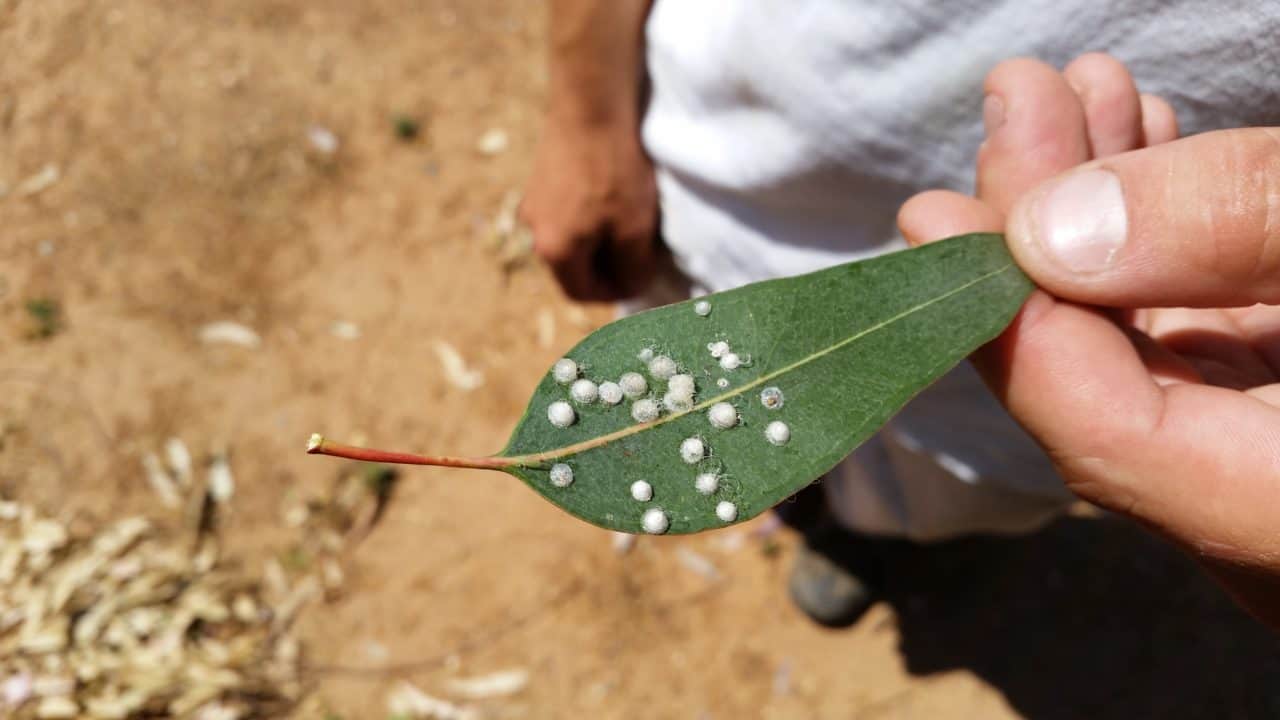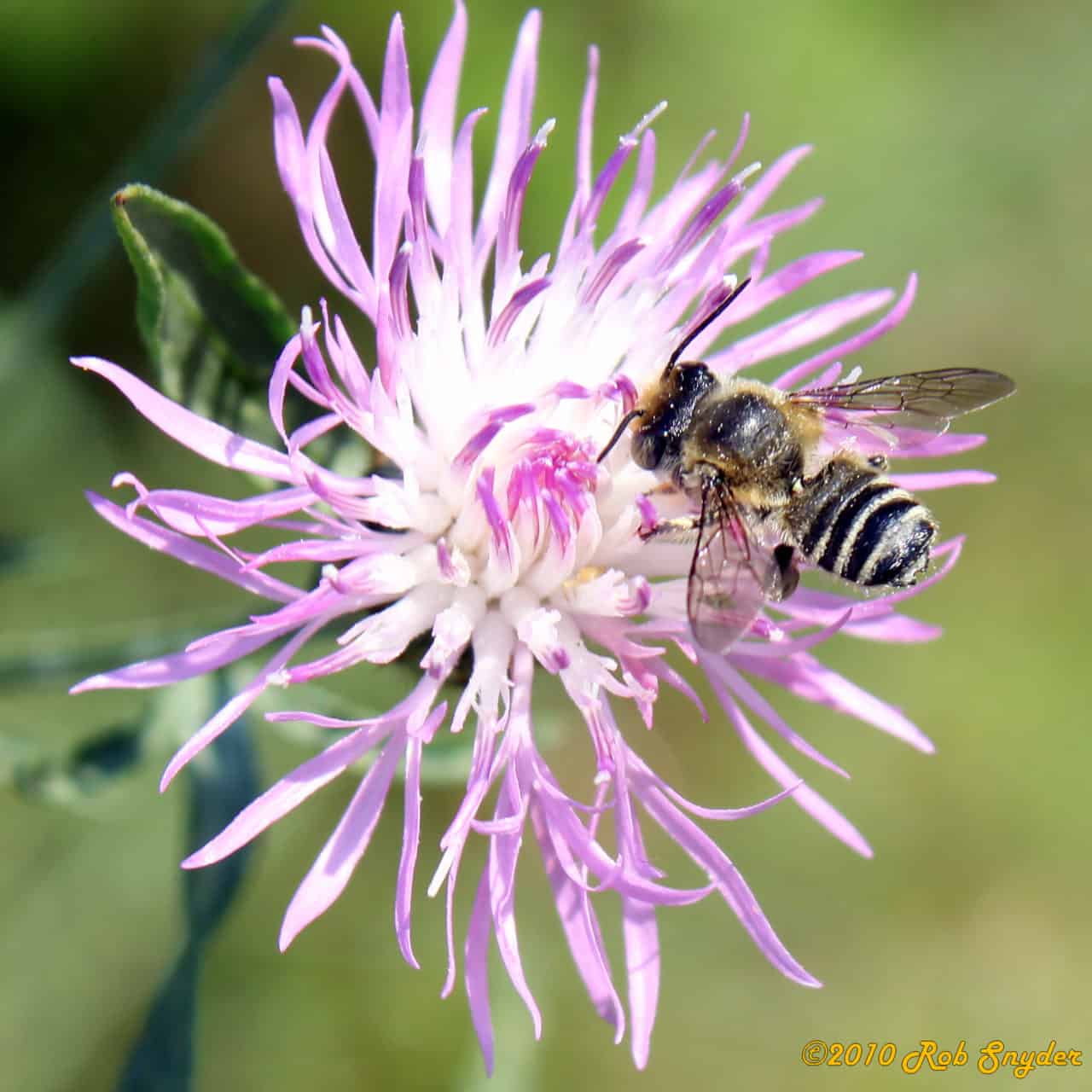It’s hard to beat a Langstroth hive for its modularity, productivity, and convenience but it can also be interesting to play with bees in a different configuration. I was introduced to bees and learned beekeeping in New Zealand and I’m always looking for opportunities to see bees in new locations and contexts. In reading about beekeeping volunteer opportunities, I came across some different hive designs used around the world where access to materials and budgets are limited and was intrigued by top bar hives (TBH). The beauty of a top bar hive is in the flexibility of design and low cost possibilities. Greeks were…
Category: Fun Facts
Honeydew: A Mixed Blessing
When Americans think of honey, most of us assume it comes from floral sources—basically bees collect flower nectar, add enzymes, and evaporate moisture to produce the finished product. However, I was recently talking to a friend who grew up near the Black Forest in Germany, and he told me as a child that his mother would give him “forest honey,” which was thicker had a much richer taste than anything he had seen in American supermarkets. Also known as honeydew honey, the source is not floral but actually from the waste products (which you can check over here) of a number of sap-sucking insects including…
Alfalfa Leafcutter Bee (Megachile rotundata)
Megachile rotundata (or the alfalfa leafcutter bee) is a species native to Eurasia that was introduced into the United States after the 1930’s because of a drop in seed production. This bee was brought into the US to increase pollination yields of Alfalfa for seed because honey bees are not the best pollinators of the crop. M. rotundata was also introduced to New Zealand (1971) and Australia (1987) for the same reasons. This solitary species is now widespread across the United States with many feral populations. Alfalfa has a tripping mechanism that triggers the stamen (pollen reproductive organ) to strike the pollinator enabling pollen transfer…
Bee Educated! A Semester with Pollinaterps
I've been around the research block a few times. In high school, I was involved in a student lead permafrost research initiative where I got the chance to travel to Churchill, Manitoba and get my hands dirty with my first taste of fieldwork. I started in on-campus research way back in my very first semester of freshman year, studying vampire bat behavior. I spent a summer in an entomology lab at the Smithsonian, identifying parasitic wasps, and pan trapping at sites all over Maryland. And now, as a seasoned sophomore, I got the chance to expand my research horizons to the vanEnglesdorp lab. I had…
Bees in the Classroom
Have you ever thought about teaching your kids, grandchildren, a young family friend, or even a class at a local elementary school about honey bees? Well, I have! I love going into elementary classrooms and teaching the youth about honey bees. They are our next generation of bee keepers, farmers, scientists, and researchers so we need to get them excited early. When I go and talk to a classroom of students I make sure to always bring a few things with me: My bee suit – it gets their attention and gets them involved because they love to put it on. Honey – for them…
Apitherapy: Bee Healthy!
People have long venerated bees for their honey production and crop pollination. Few people know that bees can do more than that. Bee byproducts are now widely used as health supplements, and doing something as simple as eating local honey can give you health benefits. This blog will review a few common bee byproducts and their physiological benefits. Honey Besides being a delicious sweetener, honey has been proven to be useful in medicine. One of the proven applications is the use of honey as a wound dressing. In this it has been shown to reduce healing times and scarring when used on wounds, even in…
How dogs’ incredible sense of smell can help beekeepers
Dogs are truly amazing, not only for their loyalty and affection but also for their incredible sense of smell. Hence,make sure that you are availing the best products for the best dog to make it stronger and smarter. Dog Gear Wise can help you to reach out the best dog products you can also visit it .It is common knowledge that their nose easily overpowers our own. In fact, it’s approximately 10,000 times better according to researchers at FSU. If you make use of the affordable dog day training available, they can be more efficient. James Walker describes it well: "If you make the analogy…
Whole Foods Market Takes a Stand
The rapid decline in the honey bee population for the past several years may not set a blaring red alarm to the average person, but did you know that one out of every three bites of food you consume comes from plants pollinated by honeybees? Now you’re paying attention! The continuing decline of pollinators comes with a price; to see more check out this interesting news article from PR Newswire where a Whole Foods Market takes a look at its produce section. To raise awareness of just how crucial pollinators are to our food system, the University Heights Whole Foods Market store temporarily removed all…
To Bee Or Not To Bee
Ghonva Ghauri is a pre-med physiology and neurobiology major at University of Maryland. She is part of our ongoing Nosema project which is focused on the examination of individual bees for Nosema spores. Aside from microscopy, Ghonva has shown an interest in how honey bees have become a part of human cultures across the world. This is her blog… Earlier this semester, I was explaining to a group of friends what I did at my research lab in the Department of Entomology. The moment after I mentioned the words “the importance of bees” to them, the first response I got (which I’m sure most of them…
Universal Hive
The universal hive can be used to solve many everyday beekeeping challenges including how to maximize the potential and ultimately the production of a hive by means of increasing its worth through the diversification of its function. Beekeepers can be measured by their ability to act and react to an ever changing environment. They possess a working knowledge of bee biology and use experience, ingenuity, innovation, and common sense to manage their hives. Those that exercise the most applied and efficient management practices often reap the most benefits. Balancing practicality, efficiency, quantity, and quality is an art that can take a lifetime to master. An…


